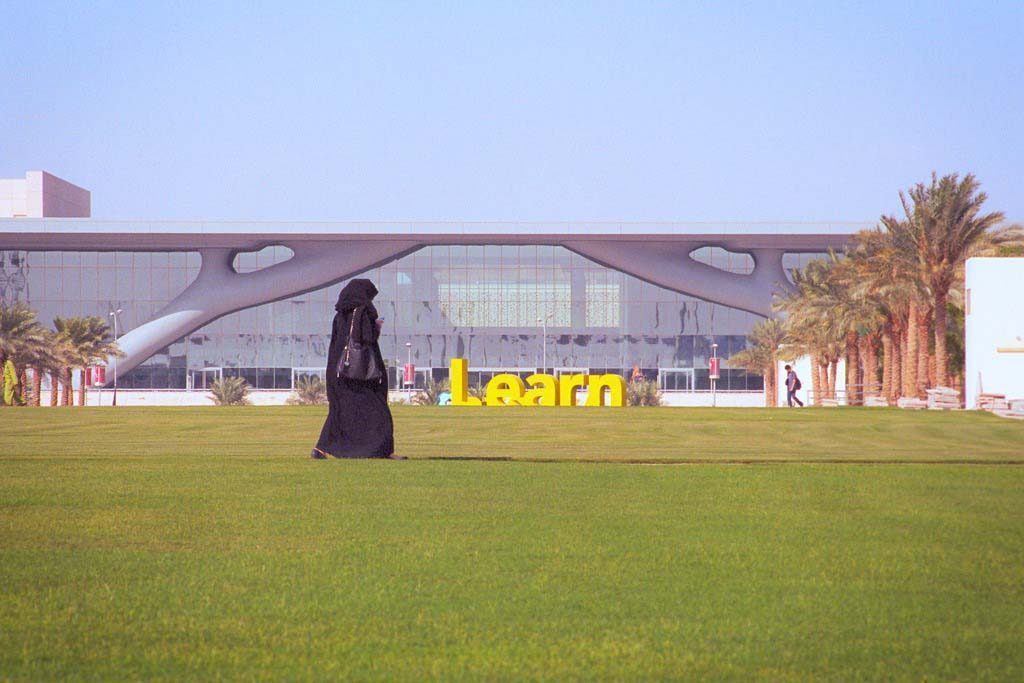
For years, Qatar has struggled to balance modernity and tradition, a tug of war that is perhaps most evident inside the nation’s higher education institutions, reports NPR’s Robert Siegel.
Following a recent visit here, the radio journalist has been airing a series this week about the Gulf nation, which is in the spotlight because of the 2022 World Cup.
In his latest report, “Instead Of Sending Students Abroad, Qatar Imports U.S. Colleges,” Siegel talks to students and faculty at Education City and Qatar University.
At Georgetown University in Qatar, he found support for reform of the country’s controversial kafala system among some Qataris, including 19-year-old Mohammed, who said:
“I do not agree with the sponsorship program. I do believe it is restricting them from basic rights they should have. If the worker does not feel content with the place he is working, he should have the right to leave.”
Questions
Remarks like that have sparked some interesting questions about the long-term consequences of importing American education to a conservative Islamic state ruled by one family, political science Prof. Mehran Kamrava told Siegel:
“What happens, in 10, 20 years when you have a sizable alumni that have been educated by Georgetown University? Do they not ask questions that are inconsistent with a nondemocratic political system?”
To be sure, those questions have not reached any critical mass yet.
Qataris support the right to vote in legislative elections, but that opportunity has been postponed for decades, most recently this summer following the government transition.
According to one researcher at Qatar University, there is no urgency for elections because the government “feels the pulse of the people.”
Siegel adds:
And as Kamrava points out, the Qatari college student who finds his country’s political institutions stifling soon becomes a college graduate with a stake in the status quo.
“Oftentimes we end up with alumni at age 21 or 22 that graduate from these American branch campuses and get multiple job offers earning more money than someone like me makes,” he said. “As a result, they get absorbed into the economic mainstream in a kind of way that doesn’t leave any time for political questions to be asked.”
Thoughts?







